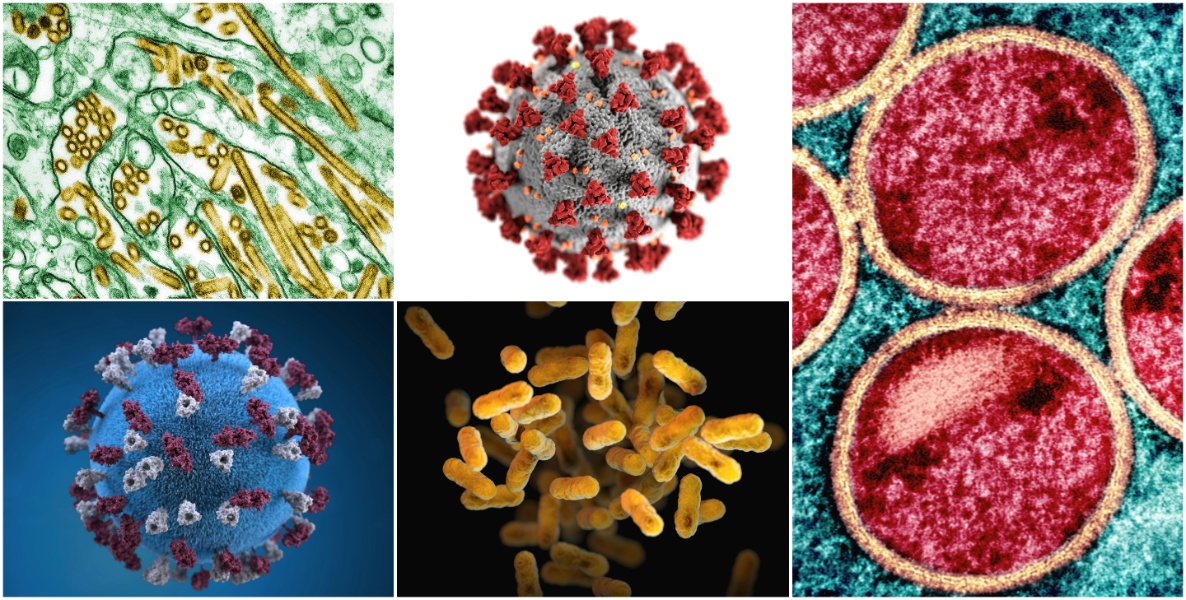During his run for the presidency, RFK Jr. bragged that he would tell all researchers at the National Institutes of Health (NIH) to “give infectious diseases a break for a while.” He believes that we should focus on chronic diseases, which he says are increasing exponentially.
Toward that end, RFK Jr. has eliminated the entire staff at the Office of Infectious Diseases and HIV policy, instituted massive layoffs at the FDA, NIH and CDC, and caused the closures of many vaccine clinics.
While critical elements of our public health infrastructure are now “giving infectious diseases a break,” will they give us a break?
Measles
The CDC currently reports 712 confirmed cases of measles in 25 states and jurisdictions, including the first death of a child from measles in more than 20 years, followed by a second child death a few weeks later. The key word here is “confirmed,” which means confirmed by serology or PCR. Most people with measles are never tested. Given the current rate of hospitalizations and death, public health officials estimate that the actual number of cases is probably closer to 3,000. Researchers fear that more children might die from this disease.
If viruses and bacteria had a lobby in Congress, they could find no bigger advocate than RFK Jr.
RFK Jr. has done his part to ignore the seriousness of measles and promote unproven treatments. He has insisted that people should not feel compelled to be vaccinated, arguing that it’s a personal choice. He has misinformed the public by claiming that “measles vaccine kills people every year,” that “measles vaccine causes blindness and deafness,” that “measles vaccine causes the same symptoms as measles,” that natural measles “prevents cancer,” and that vitamin A is a miracle cure for the disease. Before his confirmation as head of Health and Human Services (HHS), RFK Jr. was a prominent anti-vaccine activist for more than 20 years.
RFK Jr.’s interest in promoting measles doesn’t end there. Because of his steep cuts in federal funding, public health officials in Dallas cancelled dozens of vaccination clinics. Many of these clinics had been targeted to schools with low vaccination rates.
Pertussis (whooping cough)
In 2024, the United States suffered 35,000 cases of whooping cough and 10 deaths, the highest numbers in more than a decade. By April 2025, the CDC has reported 6,600 cases of pertussis, a number four times greater than last year. These increases are due in large part to declining immunization rates among kindergartners. Recently, two infants in Louisiana died from whooping cough, the first deaths from the disease in the state since 2018.
RFK Jr.’s cuts in CDC funding for disease surveillance and immunization clinics will only worsen this problem.
Coronaviruses
Three coronavirus pandemics have swept across the world in the last 20 years: SARS-1 in 2002, MERS in 2012, and SARS-CoV-2 (Covid-19) in 2019. For several reasons, this isn’t the end of this. First, coronaviruses are bat viruses, and bats now comprise 21 percent of the entire mammalian population. Second, deforestation is pushing bats closer to humans and other mammals. Third, animal-to-human spillover events are common. About 1 of every 40 residents of rural China have been infected with bat coronaviruses.
The next coronavirus pandemic isn’t far away.
Bird flu
According to the World Health Organization (WHO), during the past 20 years, bird flu (H5N1 virus) has infected about 1,000 people in two dozen countries causing 464 deaths. Because bird flu virus doesn’t reproduce in the nose, throat, or windpipe of people, it cannot be transmitted from one person to another. But the virus might learn to do that. If it does, bird flu will cause a pandemic. And it would take only a small change in the gene that codes for the H5 protein. Despite this threat, RFK Jr. has laid off the top veterinarians at the FDA’s Center for Veterinary Medicine who were overseeing the bird flu response.
These layoffs will severely limit surveillance and testing of bird flu strains.
Mpox
On May 17, 2022, the first case of mpox in the United States was reported in Boston, Massachusetts. It was caused by a West African variant of the virus. In a few months, mpox had spread to all 50 states; more than 29,000 people were infected. The CDC declared that mpox was a public health emergency. By August 30, 2022, the first mpox death in the United States was reported. Fortunately, a 2-dose vaccine to prevent mpox (called the JYNNEOS vaccine) was made available immediately through the National Stockpile.
Mpox, which has been around for more than 50 years, was first detected in the Democratic Republic of the Congo (DRC) in 1970. Since then, the disease has largely been confined to rural areas of Central and West Africa. Recently, however, the situation in Africa has worsened. During the past two years, 45,000 cases of mpox were identified in 12 African countries resulting in 1,500 deaths. On August 13, 2024, the African CDC declared that mpox was once again a public health emergency. Events in Africa have dramatically increased the global threat from this virus.
While RFK Jr. is giving “infectious diseases a break for a while,” his policies will only allow these infections to flourish. If viruses and bacteria had a lobby in Congress, they could find no bigger advocate than RFK Jr.
Paul A. Offit, MD, is director of the Vaccine Education Center and professor of pediatrics in the Division of Infectious Diseases at Children’s Hospital of Philadelphia. This piece originally ran on his Substack, Beyond the Noise!
The Citizen welcomes guest commentary from community members who stipulate to the best of their ability that it is fact-based and non-defamatory.
![]()
MORE FROM DR. OFFIT ON RFK JR.
Depictions of, clockwise, from top left: bird flu, coronavirus, mpox, pertussis and measles. Courtesy of the CDC and NIH.


